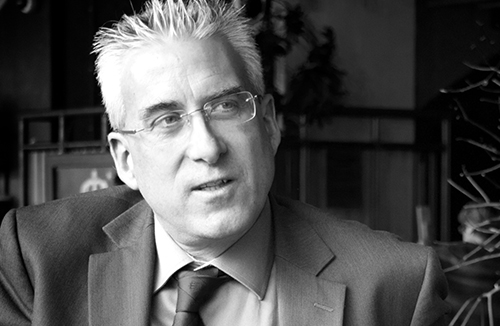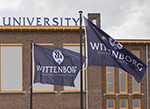You’re a Dutch university partnering with the British University of Brighton – the epitome of the European ideal. Is that all over now? How have your students reacted to the news?
We have students who are following joint taught degree programmes with the University of Brighton and initial reaction was concern. However, both the Vice Chancellor of the University of Brighton and ourselves have reassured the students that in the short term nothing will change as there will be two years from the moment that the UK submits its decision to withdraw and this may not take place until early next year. And our university has degree awarding powers, so there is no threat to students’ graduation.
Could this be different for other European institutes?
I could imagine that many European business and hospitality schools who rely on UK franchises are more worried.
What could be the ramifications for yourself as a British citizen working in the Netherlands?
I personally think that there will be a compromise especially in areas such as labour movement. There are so many UK citizens living in the EU and of course many EU citizens living in the UK. As a British citizen living in the Netherlands I personally don't have an issue as I have lived here for so long that I have permanent residence. I also have Swiss nationality which helps, even though not fully ‘EU’, and I always have the opportunity to become Dutch!
What effects can you foresee for the sector of education?

I think that the first effects of Brexit on the higher education sector will be seen in the difficulty of achieving European research funding. The decision-makers of the European Union will be wary of awarding funding to projects that include UK partners and ongoing applications might very well be affected if not in the long term in the short term. EU funding for projects plays an important part for the UK's research. Having said that, I believe that the European Union is a master in compromise and as the United Kingdom comes to terms with the disastrous ramifications of the vote to leave the EU, an alternative pathway may be devised that possibly sees the UK compromising and the EU doing the same. Many talk of a model similar to that of Norway, in which the freedom of movement of people, goods and services is guaranteed however the involvement of the UK in discussions about policy would be limited. There is therefore a serious chance that once the British people understand this, they might even choose to overturn the decision made in June.
You’re optimistic… Listening to some of the senior EU politicians it doesn’t sound as if they wanted to offer compromises…
If there is no compromise, then the UK could suffer a tremendous setback and the higher education would bear the brunt of the issues caused by a clampdown on immigration, international student fees for EU students and a complete withdrawal of EU funding for research.
Would such a “true” Brexit harm your school as well?
A true Brexit would affect the freedom of movement of people, which in our case would not only affect students but also staff. Quite a few of our MSc and BA/BSc awards are joint awards with the University of Brighton and throughout the year around 70-100 teaching days are taught by British lecturers who fly over to the Netherlands. Our staff are also often in Brighton. If there is no freedom to work in the EU for UK staff, this could have an impact on most of our programmes.
How about business schools in Great Britain?
I think that business schools in the UK are already suffering from tighter immigration policies however the good ones will always continue to do well as their reputation is extremely high and they also don’t rely on only EU students. The issues with European students will be that they no longer fall under the student loan system or that they have to pay much higher fees compared to what they were used to pay. It seems that the uncertainty at the moment in the market is causing EU students, particularly from Eastern Europe, to consider staying on the continent.
Do you expect an increase of applications in other European institutes like your own?
On the one hand there may be an increase in applications especially from EU students who are worried about the continuity and the assurance that they can study in the UK for the same fee, with a student loan, and possibly work there afterwards. However, on the other hand, many non-EU students, in particular Chinese students, are seeing education become cheaper as the pound falls.
How are you planning for the future?
We are in discussions with Vienna about opening a campus there – precisely to more embed ourselves in Europe, especially for German and East European students. We are doing this with the support of the University of Brighton.
|
Peter Birdsall: “I think that the new UK prime minister will lay out his or her concept for negotiating with the European Union and that this concept will be in line with a Norwegian model allowing the freedom of movement of people and continued access to the single market. Then the Prime Minister will call a general election. Possibly then campaigning will be fought between two camps: (1) the Norwegian model whereby the UK has no input to discussions in the EU If my prediction does not happen for either scenario, then the UK will be plunged into economic turndown for decades, Scotland will break away to join the EU and the peace in Northern Ireland will be threatened.” |


 About Peter Birdsall:
About Peter Birdsall: